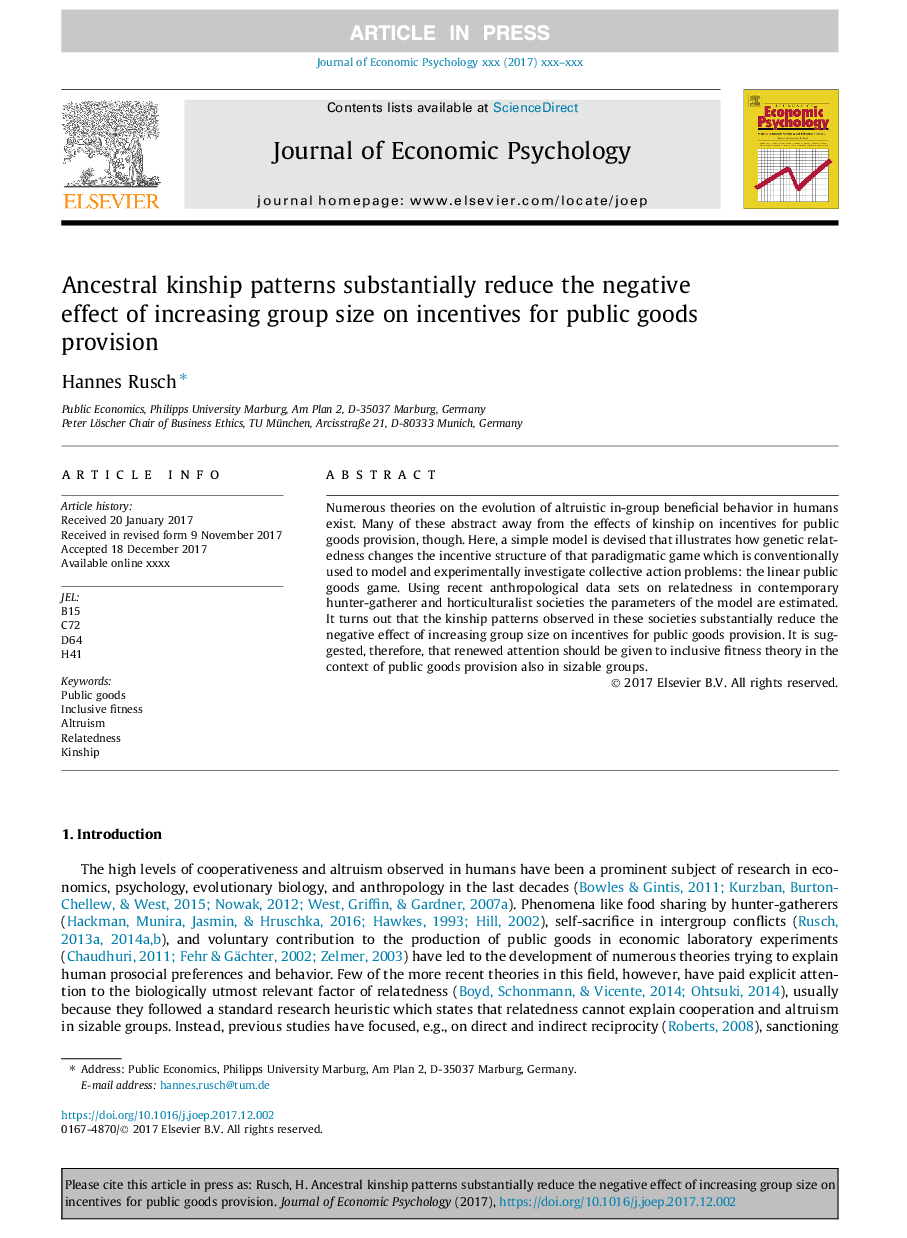| Article ID | Journal | Published Year | Pages | File Type |
|---|---|---|---|---|
| 7244098 | Journal of Economic Psychology | 2018 | 11 Pages |
Abstract
Numerous theories on the evolution of altruistic in-group beneficial behavior in humans exist. Many of these abstract away from the effects of kinship on incentives for public goods provision, though. Here, a simple model is devised that illustrates how genetic relatedness changes the incentive structure of that paradigmatic game which is conventionally used to model and experimentally investigate collective action problems: the linear public goods game. Using recent anthropological data sets on relatedness in contemporary hunter-gatherer and horticulturalist societies the parameters of the model are estimated. It turns out that the kinship patterns observed in these societies substantially reduce the negative effect of increasing group size on incentives for public goods provision. It is suggested, therefore, that renewed attention should be given to inclusive fitness theory in the context of public goods provision also in sizable groups.
Related Topics
Social Sciences and Humanities
Business, Management and Accounting
Marketing
Authors
Hannes Rusch,
